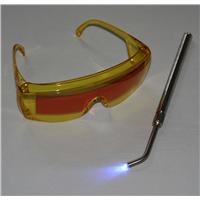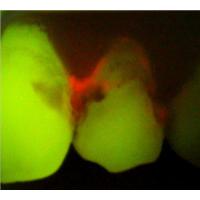
The British Dental Health Foundation and Oral-B research shows that people dont understand that a smile can actually be a barometer of your overall wellbeing, and that a good oral care routine has potential health benefits beyond just your teeth and gums.
Dr Nigel Carter, Chief Executive of the British Dental Health Foundation says: Oral health is often seen as of secondary importance to general health – around 85% of people are completely unaware of the link between the health of the mouth and the health of the body. This years National Smile Month Theme: Teeth4Life will highlight the importance of maintaining and looking after the health your teeth throughout life.
Luckily as summer approaches 60% of Brits understand that fad diets like the Maple Syrup Diet are going to play havoc with their smiles. However most people mistakenly think that red wine is worse for their teeth than white- incorrect! Research shows that red wine can actually ward off tooth decay* (due to the chemicals in it that stop harmful bacteria sticking to teeth), and it is in fact white wines like Pinot Grigio and Chardonnay that can be the most staining to teeth, as they actually wear away the protective enamel**.
Shockingly a third of us think that nothing serious will happen to us if we neglect our gums, whereas research has linked gum disease to potential risk of heart disease, diabetes, strokes, premature births, low birth-weight babies, and even infertility. Definitely time for Brits to brush up on their oral health knowledge!
The survey, conducted to highlight National Smile month this May, shows that people think you should only brush your teeth for around 30 seconds, when dentists recommend a minimum of 2 minutes every morning and evening.
Celebrity dentist and Oral-B ambassador Dr Phil Stemmer recommends using a power brush to ensure his patients brush for the optimum 2 minutes of time: It is shocking that the National Smile Month research has revealed that people are only brushing their teeth for 30 seconds. To really ensure you brush for long enough, try the Oral-B PC Triumph 5000 with SmartGuide which not only times how long you brush your teeth for but also encourages better brushing habits. The SmartGuide display helps to prevent common problems like brushing too hard, not brushing for long enough and unequal brushing.
The National Smile Month survey also reveals that over a quarter of people in the UK (26%) are damaging their teeth by brushing just after breakfast, while an astonishing 38% assume they should brush their teeth after every single meal for optimum oral health. Dr Phil Stemmer recommends brushing before eating,: The enamel that coats the outer layer of our teeth is temporarily softened by acidic foods, such as fruit, he explains.Brush first thing in the morning before breakfast- and once more in evening at least half an hour after eating.
In the football smile stakes, Cheryl Cole was voted the pearly queen, having the best celebrity WAG smile, whereas Rooneys ankle injury has clearly left him down in the mouth – he has been voted the footballer with the worst smile, even compared to famously buck-toothed Ronaldinho.
This years National Smile Month campaign slogan, Teeth4Life, highlights the importance of looking after your teeth and maintaining them for life, whilst also stressing that a healthy diet can improve the quality of your life. Oral B are the experts in oral care and as the number one brand recommended by UK dentists, passionately believe in helping the nation to brush up on their oral hygiene for healthier, confident smiles.
More information on the survey
The Oral-B National Smile Month Survey was conducted across ten of the UKs largest cities, across males and females aged 18-60+Oral-B power toothbrushes are available from selected larger supermarkets, department stores and chemists. For additional information regarding Oral-Bs wide range of oral care products please visit www.oralb.com/uk
Oral-B Triumph 5000 with SmartGuide
The new sleeker, more ergonomic OralB Triumph 5000 is the next generation in premium rechargeable toothbrushes designed to fight plaque and be gentle on gums. This revolutionary toothbrush combines Oral-Bs most clinically advanced 3D cleaning and whitening technology.
The Triumph 5000 works by using microchips embedded in the brush head and handle to monitor brushing activity and provide real-time guidance of your oral care routine via SmartGuide Wireless which communicates with the digital display. The display guides you through your brushing technique to encourage better brushing habits and helps prevent common problems such as brushing too hard, unequal brushing and not brushing for long enough (ensuring the all important two minutes of brushing time is reached). It comes complete with 4 customised brushing modes, including massage and polish; it is like having a dental supervisor in the bathroom with you every time you brush.
RRP £160.00
* Research from Pavia University, Italy 2010
**Journal of Nutrition, 2009Research looking at systemic links between oral health and overall health:
HEART
December 2008 Italian/UK study in FASEB Journal reveals good oral healthcare and treatment for gum disease can prevent the bacteria that cause thickening of the arteries. (Piconi, Trabattoni et al, FASEB Journal Dec 08)
September 2008 – scientists present the Society of General Microbiologys autumn meeting with two new studies linking between gum disease and heart disease.
o A University of Bristol-led presentation shows how the 700 million oral bacteria present a clear risk, with harmful bacteria bonding to protect against the immune system or antibiotics, and increasing chances of heart disease even in the case of fit healthy people (Jenkinson, Kerrigan et al Uni Bristol/RCS Dublin Sep 08)
o A study presented by University of Otagos Professor Greg Seymour finds that oral bacteria causes atherosclerosis, or furring of the arteries, as oral bacterias similarity to proteins which cause arteries to fur confuses the immune system.
Jan 2006 – PERICAR trial, a collaboration between Australias Sydney Dental Hospital and Royal North Shore Hospital and Norways University of Oslo. Strong evidence that treating gum disease can reduce the risk of a heart attack or stroke. Inflammation in the mouth has a measurable effect in the bloodstream and the rest of the body. Once the gum infection was eradicated the risk of heart attacks and future blood clots was reduced. (Taylor, Tofler et al; Journal of Dental Research, January 2006)
DIABETES
November 2008 Columbia University (USA) publishes evidence of links from periodontal disease to type 2 diabetes. Of 9,000 participants in the study 800 developed diabetes. Those with high levels of periodontal disease were twice as likely to develop diabetes.(Demmer, Desvarieux et al, Diabetes Care)
July 2007 – The Department of Periodontology at the University of Copenhagen (Denmark) finds link between gum disease and pre-diabetes, often a precursor to type-2 diabetes. Dr. Carla Pontes Andersen said: The gum inflammation seen in periodontitis can allow bacteria and inflammatory substances from the dental structures to enter the bloodstream. These processes seem to affect blood sugar control. (Pontes Anderson, Flyybjerg et al; Journal of Periodontology)
PREMATURE BIRTHS
December 2008 researchers in Finland question 328 women on oral health and pregnancy, those who needed urgent dental treatment, suggesting poor oral health, were 2.5 times more likely to miscarry. (Heimonen et al, Blackwell Publishing July 2007 – Faculty of Dentistry at the University of Chile finds link between gum disease and premature births. One in three women at risk of premature labour presented with gum disease bacteria in their amniotic fluid, as well as their mouth.
o Amniotic fluid surrounds an unborn baby. Scientists believe that any disruption to this fluid could pose a danger to both mother and baby, especially as hormone changes in pregnant women expose a greater risk of gum disease. (Leon, Silva et al; Journal of Periodontolog
STROKES
June 2006 – University of California scientists found that gum disease may contribute to clogged carotid arteries leading to an increased risk of a stroke. Blocked carotid arteries were much more common in people who had gum disease. (Chung, Friedlander et al, General Session & Exhibition of the International Association for Dental Research)
INFERTILITY
February 2009 Pilot study on 56 men by Hebrew University Hadassah School of Dental Medicine and Bikur Holim Hospital-based scientists in Israel suggests links between gum disease and low sperm counts.
About the British Dental Foundation
The British Dental Health Foundation is an independent charity that along with its global arm, the International Dental Health Foundation, is dedicated to improving the oral health of the public by providing free and impartial dental advice, by running educational campaigns like National Smile Month and by informing and influencing the public, profession and government on issues such as mouth cancer awareness and water fluoridation.
Oral-B (P&G) is proud to be a Platinum supporter of National Smile Month 2009. The company is committed to supporting patient education and produces free literature covering manual & power brushes as well as floss usage. We are committed to working with the British dental Health foundation to improve oral health.







